Filter by
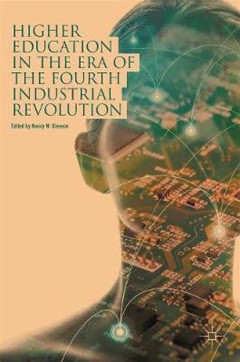
HIGHER EDUCATION IN THE ERA OF THE FOURTH INDUSTRIAL REVOLUTION
This open access collection examines how higher education responds to the demands of the automation economy and the fourth industrial revolution. Considering significant trends in how people are learning, coupled with the ways in which different higher education institutions and education stakeholders are implementing adaptations, it looks at new programs and technological advances that are cha…
- Edition
- -
- ISBN/ISSN
- 978-981-13-0194-0
- Collation
- 238 Hal
- Series Title
- -
- Call Number
- 378
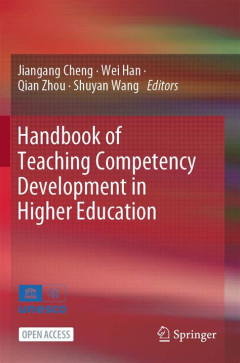
Handbook of Teaching Competency Development in Higher Education
The increasing affordances of new technologies provide both new opportunities and challenges for teaching in higher education. Equipping instructors with the necessary teaching competencies to overcome these challenges in the digital era is imperative. This handbook serves as a reference for higher education stakeholders. It aims to cultivate high-quality instructors, improve higher education q…
- Edition
- -
- ISBN/ISSN
- 978-981-99-6273-0
- Collation
- 165 Hal
- Series Title
- -
- Call Number
- 2300
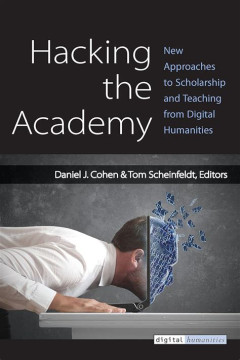
Hacking the Academy
Hacking the Academy explores how scholars are rethinking traditional academic practices through the lens of digital tools, open access, and new modes of collaboration. Born from an experimental crowdsourced initiative, the book brings together contributions from educators, researchers, librarians, and technologists who challenge the conventions of publishing, peer review, teaching, and academic…
- Edition
- -
- ISBN/ISSN
- 978-0- 472- 02947- 1
- Collation
- 177 Hal
- Series Title
- -
- Call Number
- 001.30285

Global Citizenship Education
The book explores how global citizenship education (GCE) prepares students to engage with global issues like human rights, sustainability, and diversity. It examines both theory and practice, highlighting how GCE can empower learners to think critically and act responsibly in a globalized world.
- Edition
- -
- ISBN/ISSN
- 978-3-030-44617-8
- Collation
- 217 Hal
- Series Title
- -
- Call Number
- 323.6

First-in-Family Students, University Experience and Family Life
This book explores the experiences of students who are the first in their family to attend university. It examines their motivations, challenges, and the impact of higher education on family relationships.
- Edition
- -
- ISBN/ISSN
- 978-3-031-34451-0
- Collation
- 307 Hal
- Series Title
- -
- Call Number
- 378.198
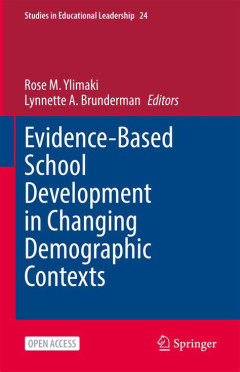
Evidence-Based School Development in Changing Demographic Contexts
This book explores how schools can use data-driven strategies to adapt and improve in response to changing demographic trends. It highlights practical approaches for inclusive, evidence-based development in diverse educational settings.
- Edition
- -
- ISBN/ISSN
- 978-3-030-76837-9
- Collation
- 185 Hal
- Series Title
- -
- Call Number
- 371.2
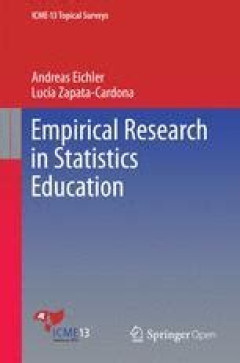
Empirical Research in Statistics Education
Abstract: This book provides a comprehensive overview of empirical research in statistics education, offering insight into how students learn statistics and how educators teach it. The volume covers key topics such as understanding fundamental statistical concepts, the role of technology in statistics learning, and the professional development of teachers. It also explores methodological appro…
- Edition
- -
- ISBN/ISSN
- 978-3-319-38967-7
- Collation
- 44 Hal
- Series Title
- -
- Call Number
- 519.5
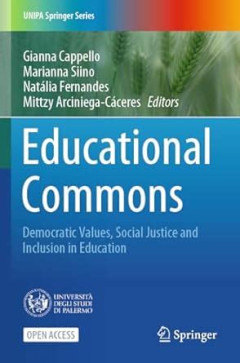
Educational Commons
This open access book presents the final findings from the case studies developed within the Horizon 2020 SMOOTH project “Educational Spaces: Passing through Enclosures and Reversing Inequalities through Educational Commons.
- Edition
- -
- ISBN/ISSN
- 978-3-031-51837-9
- Collation
- 258 Hal
- Series Title
- -
- Call Number
- 379.2
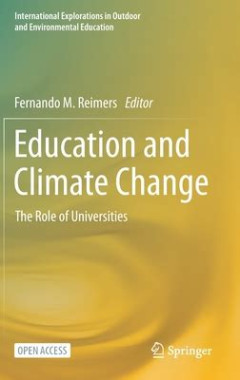
Education and Climate Change
This open-access volume examines how universities can lead climate change education through partnerships with schools and communities. It reviews gaps in current efforts and presents case studies—from the Middle East to Guatemala, Haiti to Pakistan—demonstrating a five‑step process for designing context-specific curricula that foster deep learning and social action
- Edition
- -
- ISBN/ISSN
- 978-3-030-57927-2
- Collation
- 213 Hal
- Series Title
- -
- Call Number
- 333.7071
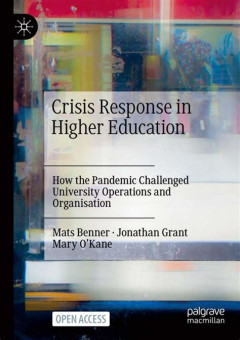
Crisis Response in Higher Education
This book explores how higher education institutions responded to the COVID-19 crisis, with a particular focus on governance, operations, teaching, and organization. Drawing on case studies from multiple countries, the volume examines the immediate and long-term institutional responses to the pandemic and their implications for the future of higher education. It considers how universities manag…
- Edition
- -
- ISBN/ISSN
- 978-3-030-97837-2
- Collation
- 187 Hal
- Series Title
- -
- Call Number
- 378

Communicating in School Science
This book investigates how students aged 5 to 16 communicate and collaborate during science lessons. It emphasizes the importance of group work, dialogue, and peer interaction in developing scientific understanding
- Edition
- -
- ISBN/ISSN
- 9781850006435
- Collation
- 195 Hal
- Series Title
- -
- Call Number
- 375.5
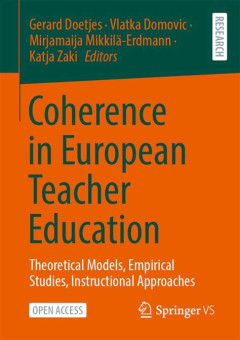
Coherence in European Teacher Education
This open-access volume compiles research on coherence in teacher education from a transnational European perspective. Through theoretical-conceptual, empirical, and instructional lenses, the contributions investigate structural, curricular, conceptual, and personnel dimensions of coherence in teacher education
- Edition
- -
- ISBN/ISSN
- 978-3-658-43721-3
- Collation
- 271 Hal
- Series Title
- -
- Call Number
- 370
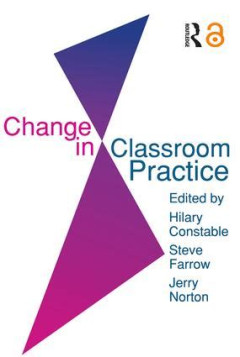
Change in Classroom Practice
Change in Classroom Practice explores how and why classroom practices change, focusing on the challenges faced by teachers attempting to implement educational reform. Drawing on case studies and real classroom experiences, the book examines the dynamics between policy demands, teacher beliefs, and institutional cultures. The authors analyze the tension between innovation and resistance, and how…
- Edition
- -
- ISBN/ISSN
- : 978‑0750701983
- Collation
- 167 Hal
- Series Title
- -
- Call Number
- 371.1024
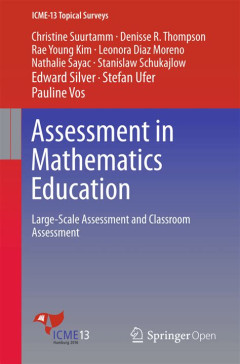
Assessment in Mathematics Education
This book provides a comprehensive overview of key issues and current research in the field of assessment in mathematics education. It addresses two major areas: large-scale assessment and classroom-based assessment, examining their purposes, challenges, and implications for teaching and learning.
- Edition
- -
- ISBN/ISSN
- 978-3-319-32394-7
- Collation
- 46 Hal
- Series Title
- -
- Call Number
- 510.71

Education for the Professions in Times of Change
This book is a critical exploration of the place of professions and professionals across a range of fields, from p olicing to m idwifery, s ocial w ork to j ournalism, and the fi ctional pr ofessionals of literature. It arose from a concern about the denigration of professionals by populist politicians which in itself demonstrated the need for the kinds of trustworthy expertise for which prof…
- Edition
- -
- ISBN/ISSN
- 978-3-03936-516-6
- Collation
- 188 halaman
- Series Title
- education science
- Call Number
- 371.3

Inclusive Pedagogy in Contemporary Education
In recent years, education has undergone significant transformation, largely driven by a growing acknowledgment of the importance of inclusive pedagogy. This book, Inclusive Pedagogy in Contemporary Education, explores the multifaceted aspects of inclusive teaching and learning practices. It provides educators with a comprehensive exploration of strategies, insights, and reflections essential f…
- Edition
- Volume 15
- ISBN/ISSN
- 978-0-85014-065-1
- Collation
- 266 halaman
- Series Title
- Education and Human Development
- Call Number
- 371.9046

Contemporary Pedagogies in Teacher Education and Development
As with most dynamic activities that are based on social and cultural contexts and rely on interactions, education is a complex and often ambiguous endeavor. Despite this complexity, however, scholars and educators are often required to find ways of defining and explaining what “good” teaching is and to incorporate these conclusions into teacher education. What are the characteristics of �…
- Edition
- -
- ISBN/ISSN
- 978-1-83881-638-4
- Collation
- 148 halaman
- Series Title
- -
- Call Number
- 370.71
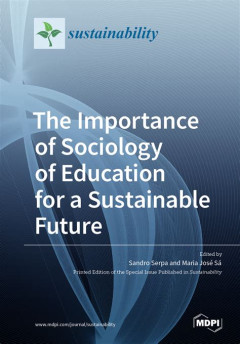
The Importance of Sociology of Education for a Sustainable Future
The Special Issue of the journal Sustainability—The importance of Sociology of Education for a sustainable future, aims to offer a contribution to the deepening of the relationship between the Sociology of Education and sustainability. There are seven published papers that, to a greater or lesser degree, problematize this relationship. This editorial presents this Special Issue, the publishe…
- Edition
- -
- ISBN/ISSN
- 978-3-0365-3911-9
- Collation
- 154 halaman
- Series Title
- sustainability
- Call Number
- 305.8

The End-Purpose of Teaching Social Sciences and the Curricular Inclusion of…
- Edition
- -
- ISBN/ISSN
- 978-3-0365-2886-1
- Collation
- 166 halaman
- Series Title
- social sciences
- Call Number
- 370.9
- Edition
- -
- ISBN/ISSN
- 978-3-0365-2886-1
- Collation
- 166 halaman
- Series Title
- social sciences
- Call Number
- 370.9
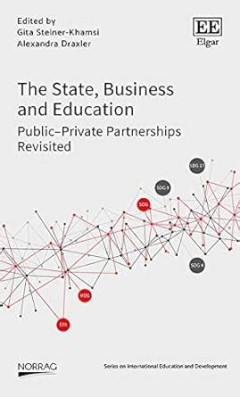
The State, Business and Education
The series reflects the mission of the global Network for International Policies and Cooperation in Education and Training (NORRAG) to produce, disseminate and broker critical knowledge on topical issues that emerge in education and development. Through its programs, knowledge production and dissemination, NORRAG contributes to enhancing the conditions for participatory, informed, and evi…
- Edition
- -
- ISBN/ISSN
- 978 1 78897 033 4
- Collation
- 206 halaman
- Series Title
- NORRAG SERIES ON INTERNATIONAL EDUCATION AND DEVELOPMENT
- Call Number
- 379.1
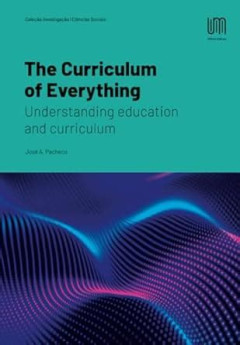
The Curriculum of Everything Understanding education and curriculum
explores the evolving nature of education and curriculum in the context of technological advancements, globalization, and societal shifts. Pacheco, a leading scholar in curriculum studies, examines the interplay between knowledge, power, and technology, emphasizing the transformative impact of digitalization and artificial intelligence on subjectivity and learning
- Edition
- Ilmu Sosial
- ISBN/ISSN
- 978-989-9074-12-5
- Collation
- 212 halaman
- Series Title
- koleksi penelitian
- Call Number
- 370.375
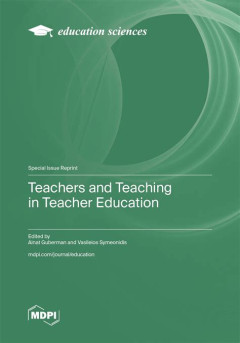
Teachers and Teaching in Teacher Education
A decade has passed since Goodwin and colleagues asked who teacher educators are and what they need to know and be able to do [1]. During that time, multiple answers were provided concerning teacher educators’ roles such as second-order teachers, researchers, curriculum developers, and coaches [2]. The answers continue to multiply and change in response to global policies and local contex…
- Edition
- -
- ISBN/ISSN
- 978-3-7258-2954-5
- Collation
- 248 halaman
- Series Title
- education sciences
- Call Number
- 371.102
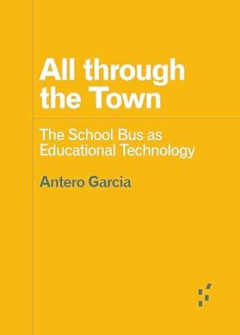
Round and Round: The Journey of the School Bus
The proper education of any people includes sympathetic touch between teacher and pupil; knowledge on the part of the teacher, not simply of the individual taught, but of his surroundings and background, and the history of his class and group; such contact between pupils, and between teacher and pupil, on the basis of perfect social equality, as will increase this sympathy and knowledge; f…
- Edition
- -
- ISBN/ISSN
- 9781452969718
- Collation
- 23 halaman
- Series Title
- -
- Call Number
- 370

Respecting the Voices of Individuals from Marginalised Communities in Research
The document is a reprint of a special issue from the journal "Education Sciences," focusing on the importance of respecting the voices of individuals from marginalized communities in research.
- Edition
- -
- ISBN/ISSN
- 978-3-0365-4182-2
- Collation
- 218 halaman
- Series Title
- Education Sciences
- Call Number
- 370
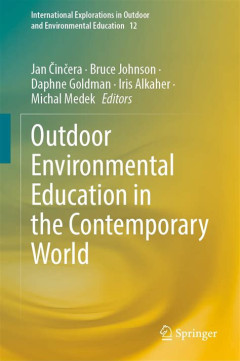
REAL WORLD LEARNING IN OUTDOOR ENVIRONMENTAL EDUCATION PROGRAMS
This book analyzes the theoretical frameworks shaping the practice of outdoor environmental education programs. For the analyses, we applied the Real World Learning Model that defines the quality criteria for this kind of practice.
- Edition
- -
- ISBN/ISSN
- 978-80-210-9758-2
- Collation
- 197 halaman
- Series Title
- -
- Call Number
- 372.35

QUALITY PARAMETERS OF HIGHER EDUCATION OFFICERS OF THE NATIONAL POLICE IN THE…
The monograph reflects and scientifically and methodologically substantiates ways to solve urgent problems of the theory and practice of training officers of the National Police in terms of the quality of higher education in the context of the imperative of human-dimensional meanings, taking into account studies of Ukrainian psychological, pedagogical, legal comparative studies. In the most…
- Edition
- -
- ISBN/ISSN
- 978-617-7319-67-1
- Collation
- 232 halaman
- Series Title
- -
- Call Number
- 355.029

Quality and Impact in Global Education Empirical and Conceptual Perspectives …
The focus of the research project lies on measures of development education and awareness raising in Germany.
- Edition
- Volume 14
- ISBN/ISSN
- 978-3-8309-9219-6
- Collation
- 224 halaman
- Series Title
- Educational Science and World Society
- Call Number
- 370.15
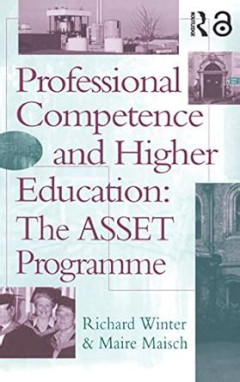
Professional Competence and Higher Education: The ASSET Programme
The ASSET project is an attempt to establish an innovative model of post qualifying vocational higher education, based on a radical application of the principle of work-based (experiential) learning and a competence-based curriculum format within the values and procedures of a university. Our book is addressed to colleagues in higher education, in vocational education and training, and to a…
- Edition
- -
- ISBN/ISSN
- 978-0-7507-0557-8
- Collation
- 21 halaman
- Series Title
- -
- Call Number
- 378.17
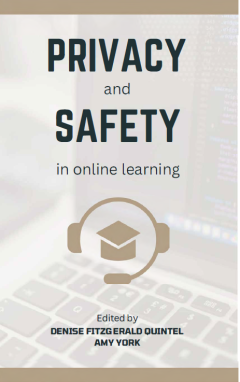
Privacy and Safety in Online Learning
This book provides readers insight into the current state of privacy issues, describes the challenges and rewards of developing more privacy-focused learning environments, and presents several resources and tools that readers can bring to their own teaching practices.
- Edition
- -
- ISBN/ISSN
- 979-8-9871721-0-0
- Collation
- 177 Halaman
- Series Title
- -
- Call Number
- 371.334
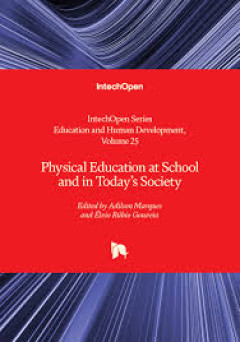
Physical Education at School and in Today’s Society
This book explores the evolving landscape of physical education in the modern era, addressing its challenges, uncovering new opportunities, and highlighting its indispensable contributions to society. Schools remain a primary space where young people develop motor skills and cultivate discipline, teamwork, and a sense of belonging— values that extend far beyond the gymnasium. Meanwhile, m…
- Edition
- Volume 25
- ISBN/ISSN
- 978-0-85014-866-4
- Collation
- 138 halaman
- Series Title
- Education and Human Development
- Call Number
- 796.082
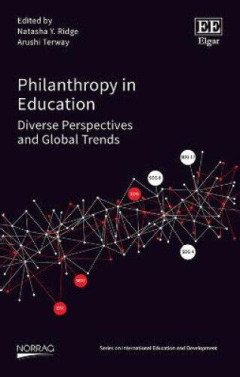
Philanthropy in Education Diverse Perspectives and Global Trends
The series aims to serve as a knowledge broker at the interface between research, analysis, policy and practice within the comparative, development and international education community
- Edition
- -
- ISBN/ISSN
- 978 1 78990 412 3
- Collation
- -
- Series Title
- NORRAG SERIES ON INTERNATIONAL EDUCATION AND DEVELOPMENT
- Call Number
- 371
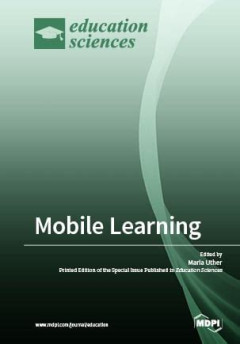
Mobile Learning
Over the years, I have found that although ‘nothing much has changed, everything has also changed very much’. Technology has most certainly changed, but the overarching themes remain the same: ‘Why would we use mobile devices for learning?’ ‘Do mobile devices help or hinder learning?’ And ‘How do we evaluate mobile learning?’ The evolution of new technologies has certainly i…
- Edition
- -
- ISBN/ISSN
- 978-3-03897-661-5
- Collation
- 88 Halaman
- Series Title
- education scieces
- Call Number
- 371.33
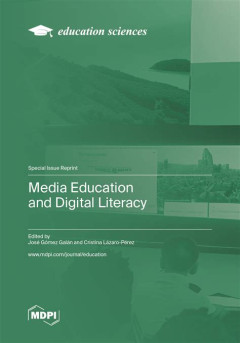
Media Education and Digital Literacy
The digital revolution is profoundly modifying our lifestyle habits and our means of understanding the world. It seems evident that we are aiding the birth of a new stage in our civilization. In particular, the digital revolution of ICT—which has brought with it the digitization of all information—is paving the way for a new era.
- Edition
- -
- ISBN/ISSN
- 978-3-0365-8007-4
- Collation
- 88 halaman
- Series Title
- Education Series
- Call Number
- 371

Measuring and Evaluating the Effectiveness of Active Citizenship Education Pr…
The current Special Issue has been inspired by the Seventh Annual Conference on Citizenship Education that was held in Roehampton University London, on 26–27 September 2019. This conference explored how citizenship education can promote young people’s civic and political engagement, particularly those of disadvantaged backgrounds. Discussions focused on the effectiveness of diverse form…
- Edition
- -
- ISBN/ISSN
- 978-3-0365-2634-8
- Collation
- 150 halaman
- Series Title
- social sciences
- Call Number
- 370.11708694
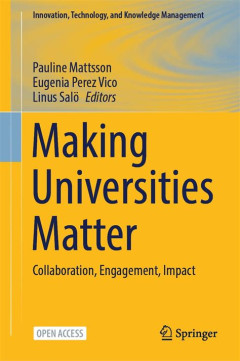
Making Universities Matter
Universities have long been integral to society, fulfilling a vital role as institutions for knowledge development, exchange, and diffusion. Even though universities have only in recent decades been portrayed as bridging the gap between academia and society through interdisciplinary collaboration and engagement, they have always been founded on societal needs and thereby have also recognize…
- Edition
- -
- ISBN/ISSN
- 978-3-031-48799-6
- Collation
- 235 halaman
- Series Title
- Innovation, Technology, and Knowledge Management
- Call Number
- 370

Leadership for Sustainable and Educational Advancement Advancing Great Leader…
If the COVID-19 pandemic affirmed anything to the educational community, it was that professional lives are incredibly connected, and a disruption across the globe has real and tangible effects on the ability to deliver education, the core business of universities and schools alike. The COVID-19 pandemic has forced rapid restructuring of education to enable educational continuity, and insti…
- Edition
- VOLUME 6
- ISBN/ISSN
- 978-1-83768-594-3
- Collation
- 244 halaman
- Series Title
- Business, Management and Economics
- Call Number
- 370.14

Leadership Approaches to Negotiate Challenges in a Changing Education Landscape
This volume was inspired by research on leadership in topperforming schools conducted by a research team in which two of the volume editors were involved. That research was in three articles published in a peer-reviewed scholarly journal in 2018.
- Edition
- -
- ISBN/ISSN
- 978-1-928523-51-2
- Collation
- 402 halaman
- Series Title
- -
- Call Number
- 378

Knowledge Production and Contradictory Functions in African Higher Education
The book Knowledge Production and Contradictory Functions in African Higher Education examines the complex roles of African universities in knowledge production, development, and socio-economic transformation.
- Edition
- Vol. 1
- ISBN/ISSN
- 978-1-920677-86-2
- Collation
- 312 halaman
- Series Title
- African Minds Higher Education Dynamics Series
- Call Number
- 378
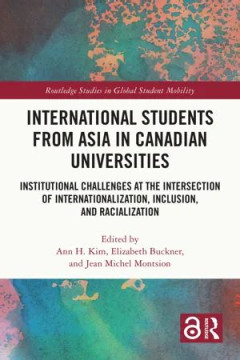
International Students from Asia in Canadian Universities
this book responds to the growing need for new insights and perspectives on the institutional mechanisms adopted by universities to support international students from Asia in their academic and social integration to university life
- Edition
- -
- ISBN/ISSN
- 978-1-003-32980-0
- Collation
- 273 halaman
- Series Title
- Routledge Studies in Global Student Mobility
- Call Number
- 378
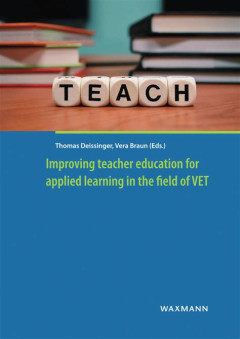
Improving teacher education for applied learning in the field of VET
In the field of vocational education and training (VET) quality has become one of the most relevant issues. As stated by the European Council, “the knowledge, skills and commitment of teachers, as well as the quality of school leadership, are the most important factors in achieving high quality educational outcomes” (European Council 2009, p. 2).
- Edition
- -
- ISBN/ISSN
- 978-3-8309-8960-8
- Collation
- 265 halaman
- Series Title
- -
- Call Number
- 370.711
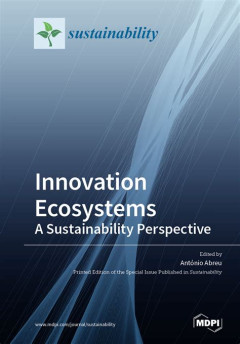
Higher Education in Innovation Ecosystems
While higher education has been considered as both an ‘engine’ for innovation and a ‘catalyst’ for sustainability development, the integration of both the ‘innovation engine’ and ‘sustainability catalyst’ roles is best reflected in higher education’s engagement in innovation ecosystems—the theme of this special issue, including 16 articles dealing with the topic from various…
- Edition
- -
- ISBN/ISSN
- 978-3-03936-576-0
- Collation
- 322 halaman
- Series Title
- Sustainability
- Call Number
- 378.013
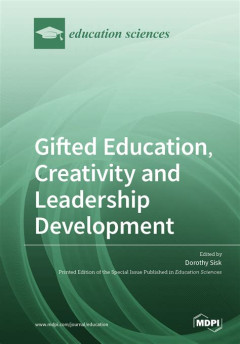
Gifted Education, Creativity and Leadership Development
Creativity, giftedness, and leadership are complex, important phenomena, especially in the threatening turbulence of 21st-century conditions; consequently, there is an increasing need to understand how to strengthen them. We can learn much about these phenomena from within the borders of specialized disciplines;
- Edition
- -
- ISBN/ISSN
- 978-3-0365-5640-6
- Collation
- 150 halaman
- Series Title
- education scienses
- Call Number
- 371.95
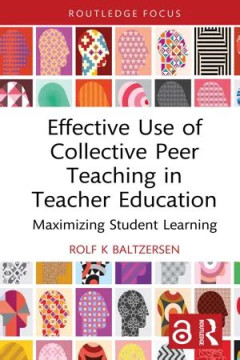
Effective Use of Collective Peer Teaching in Teacher Education
The principal question this book seeks to explore is: does teaching indeed constitute the most potent form of learning?
- Edition
- -
- ISBN/ISSN
- 978-1-003-40358-6
- Collation
- 145 halaman
- Series Title
- -
- Call Number
- 371.39
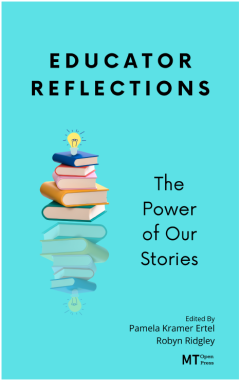
Educator Reflections The Power of Our Stories
We extend our heartfelt gratitude to everyone who contributed to this monograph project. First and foremost, we thank our contributing authors for their willingness to share their stories, demonstrating vulnerability for the benefit of others
- Edition
- -
- ISBN/ISSN
- 979-8-9871721-4-8
- Collation
- 106 Halaman
- Series Title
- -
- Call Number
- 371.102
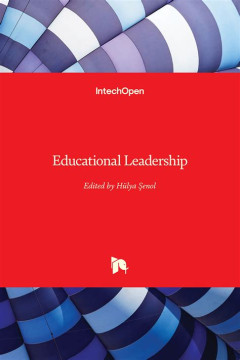
Educational Leadership
This book intends to provide the reader with a comprehensive overview of the different models of educational leadership.
- Edition
- -
- ISBN/ISSN
- 978-1-83880-037-6
- Collation
- 88 Halaman
- Series Title
- -
- Call Number
- 371.2

Education and Skills for Inclusive Growth, Green Jobs and the Greening of Eco…
This book explores how education and skills development can support inclusive growth and sustainable development in Asia, particularly through the promotion of green jobs and environmentally sustainable economies. Drawing on case studies from across the region, it highlights how governments, industries, and education providers are working to align curricula, vocational training, and workforce d…
- Edition
- -
- ISBN/ISSN
- 978-981-10-6559-0
- Collation
- 212 Hal
- Series Title
- -
- Call Number
- 331.7

Dealing with religious difference in kindergarten An ethnographic study in re…
As an early childhood educational institution, the kindergarten has the task of helping children in their development and contributing to their education.
- Edition
- -
- ISBN/ISSN
- 978‑3‑8309‑8983‑7
- Collation
- 257 halaman
- Series Title
- -
- Call Number
- 372.21
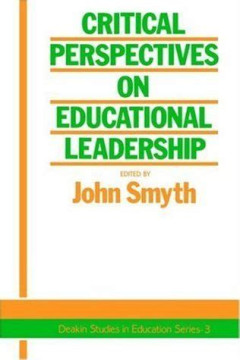
CRITICAL PERSPECTIVES ON EDUCATIONAL LEADERSHIP
The Deakin Studies in Education Series aims to present a broad critical perspective across a range of interrelated fields in education. The intention is to develop what might be called a ‘critical educational science’: critical work in the philosophy of education, curriculum, educational and public administration, language education, and educational action research and clinical supervisi…
- Edition
- 3
- ISBN/ISSN
- 978-1-85000-525-4
- Collation
- 177 Halaman
- Series Title
- Deakin Studies in Education
- Call Number
- 371.2
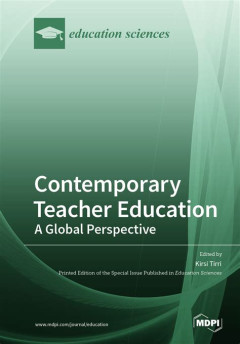
Contemporary Teacher Education: A Global Perspective
This special issue on “Contemporary Teacher Education: A Global Perspective” contains eleven articles focused on varied current topics in teacher education all over the world.
- Edition
- -
- ISBN/ISSN
- 978-3-0365-1689-9
- Collation
- 186 Halaman
- Series Title
- -
- Call Number
- 370.711

Community-University Research Partnerships: Reflections on the Canadian Socia…
This eBook explores lessons for community-university research partnerships by reflecting on the experiences, achievements and challenges of the Canadian Social Economy Research Partnerships (CSERP). Between 2006 and 2012, the six regional nodes and the national hub of CSERP were funded by the Social Sciences and Humanities Research Council of Canada (SSHRC) to conduct research on the socia…
- Edition
- -
- ISBN/ISSN
- 978-1-55058-450-9
- Collation
- 270 Halaman
- Series Title
- -
- Call Number
- 378.103
 Computer Science, Information & General Works
Computer Science, Information & General Works  Philosophy & Psychology
Philosophy & Psychology  Religion
Religion  Social Sciences
Social Sciences  Language
Language  Pure Science
Pure Science  Applied Sciences
Applied Sciences  Art & Recreation
Art & Recreation  Literature
Literature  History & Geography
History & Geography